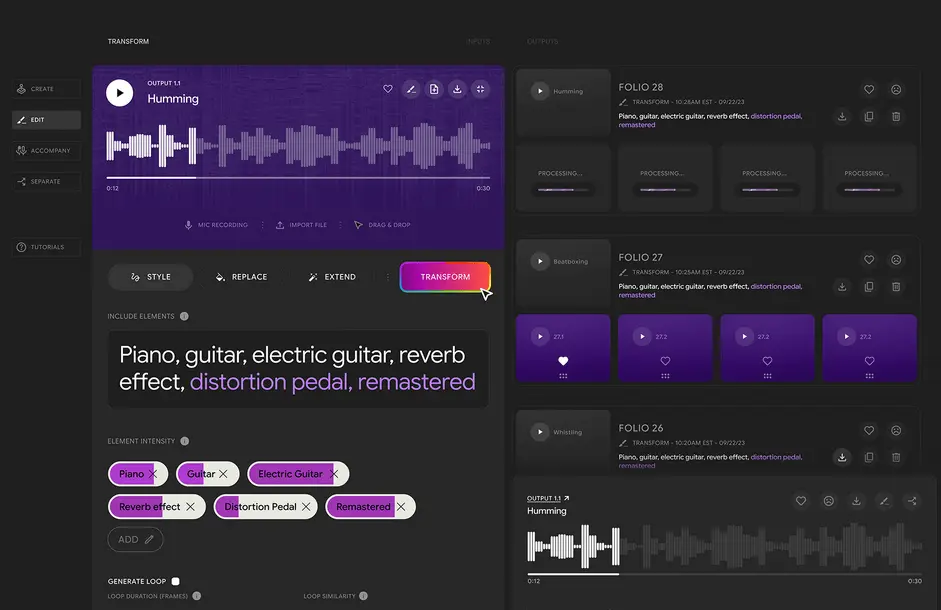Earlier this week, Google’s DeepMind division announced their latest and most advanced AI system for generating music – dubbed “Lyria”. This new model represents a significant leap forward in the quality and capabilities of AI-powered music creation.
In this article, we’ll go over some of the key takeaways from the announcement, and hopefully give you an insight into what the new Lyria model actually does.
What is Lyria?
Lyria is an auto-regressive neural network model trained by DeepMind researchers on a massive dataset of music to generate high-fidelity instrumental tracks as well as singing voices. That’s right, Lyria can be used for both instrumentals and vocals! It builds on previous DeepMind music AI projects but has greater musical understanding that allows it to produce more coherent harmonies, rhythms, and musical structure that better resembles human-composed pieces.
Right now, Lyria is being tested in private experimental partnerships with YouTube creators and artists through the “Dream Track” and “Music AI Tools” features. No official release date has been given. However, the technology powering Lyria (especially the SynthID watermarking system) may find its way into other Google/Deepmind products and services more quickly.
Key Capabilities
- Generate multi-instrumental music with vocals that capture intricate details of musical performace
- Maintain musical continuity, with smooth transitions between sections
- Give users more fine-grained control over musical qualities like style and emotional valence
- Perform musical transformations, like converting beats into a drum loop or singing into an orchestral score
Lyria also features DeepMind’s new SynthID audio watermarking technology. This allows generated samples to be tagged as synthetic while still sounding natural to listeners. The ability to watermark samples that have been generated using AI is a step towards the safe and ethical use of models like these.
Partnership with YouTube
As part of the launch, DeepMind has also teamed up with YouTube to test Lyria via two new experiments:
Dream Track – a Shorts feature matching lyrics to AI-generated music in the style of major artists like Sia, John Legend and Charlie Puth.
Music AI Tools – a suite of editing apps helping human creators boost their workflow using Lyria’s capabilities.
These partnerships demonstrate the emphasis DeepMind is placing on developing Lyria responsibly and in collaboration with the music industry. The Music AI Tools are targeted more towards music producers, artists and song writers, whereas Dream Track sounds like it will be great for independent creators and influencers who create short videos.
With Lyria representing a major advance in replicating human musical creativity with AI, DeepMind is poised to keep innovating in this space. They state their goal is to build tools that can “enhance the work of professional musicians” and “inspire creativity for artists, songwriters, producers and fans everywhere.”
But they also recognize the need to develop the technology thoughtfully – promising to continue working closely with musicians and the creative community to maximize its benefits while mitigating risks. Many artists have been concerned by the rising number of AI music tools, and DeepMind appears to be aware of this so it’s good to hear that they are working with actual artists within the industry.
You can read the official blog post announcement from Google DeepMind here: https://deepmind.google/discover/blog/transforming-the-future-of-music-creation/
While the launch of Lyria opens up intriguing new possibilities and sounds like a fantastic tool to play around with, DeepMind stresses this is only the starting point as they chart the future development of AI music generation tools. We’re excited to see what’s on the horizon for AI music creation!



